The best PMS systems by hospitality segment for 2026
Introduction
Running a hotel or hospitality business today means managing far more than rooms and bookings. In 2026 your guests expect digital convenience, personalised service and seamless operations. At the heart of all this sits your property-management system (PMS) - the software that ties together bookings, guest profiles, check-in/out, housekeeping, payments and more. If your PMS is outdated or disconnected, your operations slow, your team struggles, and your guest experience suffers.
This article is written for hotel general managers, operations leaders and tech-curious hoteliers who want a clear, non-technical guide to selecting a PMS for 2026. I’ll walk you through what matters when choosing a PMS, and then highlight the best PMS systems by hospitality segment: independent boutiques, mid-sized chains, luxury resorts, hostels/shared accommodation and holiday parks/campgrounds.
Along the way you’ll find realistic examples and timetables for rollout, helping you imagine how this could look in your property. Let’s get started.
Why the PMS still matters in 2026
Think of your PMS as the hotel’s central nervous system. It orchestrates rate management, availability, guest check-ins, housekeeping and payments. Without a strong PMS, things fall apart quickly: staff duplications, missed upsells, frustrated guests, and lost revenue. Hotels undergoing digital transformation, often driven by a robust PMS and connected systems, consistently report gains in efficiency and guest satisfaction, according to Hospitality Net. Some reviews highlight how smart hotel trends rely on modern PMS connectivity. Recent commentaries confirm hoteliers increasingly demand open APIs and strong vendor partnerships rather than basic feature lists.
How to choose the right PMS for your property in 2026
Selecting a Property Management System (PMS) in 2026 isn’t just a question of software features - it’s about strategic alignment. Your PMS should serve as the central nervous system of your hotel, connecting operations, guest experience, marketing, and financials into a single, data-driven platform. The goal isn’t simply to run the property but to elevate how it operates and how guests experience it.
Cloud readiness
A modern PMS must be fully cloud-native rather than just “cloud-hosted.” This distinction matters: web-based infrastructure enables real-time collaboration between front desk, housekeeping, maintenance, and management teams, even across multiple properties. The industry’s migration to SaaS and browser-based systems has dramatically improved uptime, data security, and speed of innovation. Cloud readiness also ensures that updates roll out automatically, no local server patches or IT bottlenecks. Hotels like The Student Hotel (TSH), now rebranded as The Social Hub, rely on a fully cloud ecosystem to manage bookings, coworking spaces, and long-stay apartments through a single dashboard accessible anywhere.
Integration capabilities
Integration remains one of the most decisive factors when comparing PMS platforms. Your PMS must speak fluently with your POS, channel manager, CRM, RMS, housekeeping, guest messaging, and IoT solutions. Hospitality Tech notes that more than 70% of hotel IT teams cite “lack of integration” as their biggest operational pain point, causing inefficiencies and fragmented data. A good test? Ask whether the PMS offers an open API or marketplace model - this determines how easily you can plug in future tools. For example, Zoku Amsterdam integrates Mews with Oaky, Revinate, and Lightspeed POS, ensuring every guest touchpoint (from check-in to bar tab) is seamlessly reflected in their PMS.
Guest experience
A PMS is only as valuable as the guest experience it enables. Today’s travellers expect mobile keys, contactless check-in, real-time messaging, and personalised offers. These aren’t just amenities - they are drivers of satisfaction and loyalty. A recent Statista case study on hotel automation found that automation tools increased guest satisfaction by 24% on average while reducing staff workload. Similarly, Hotel Technology Next Generation reports that integrated PMS + CRM solutions improve repeat bookings by up to 18%. At Pillows Hotel Reylof, automating upsells via Mews and Oaky led to a 23% increase in conversion rates, directly lifting total revenue per available room.
Efficiency and automation
Efficiency is where PMS technology delivers the clearest ROI. Automating routine tasks, like room assignment, housekeeping schedules, and performance reports, frees staff to focus on hospitality rather than administration. According to Hotel News Now, properties that introduced automation across back-of-house functions reduced administrative hours by up to 35% without cutting jobs. Automation also supports sustainability: integrated systems can trigger smart-energy modes in empty rooms or generate real-time maintenance alerts, preventing costly downtime.
Scalability
As your brand grows, whether from a single boutique property to a multi-property group or a hybrid model, the PMS must scale seamlessly. This doesn’t only mean handling more rooms; it means supporting complex rate structures, regional tax rules, and cross-property reporting. Insights from Boutique Hotel News show that independent hotels increasingly prioritise scalability over cost when selecting software, ensuring flexibility to evolve with new business models such as extended-stay or co-living. A well-designed PMS allows you to clone configurations, replicate workflows, and centralise data across regions - without starting from scratch each time.
Support and total cost
Finally, the purchase price is just the beginning. True cost includes implementation, onboarding, training, and ongoing vendor support. The Skift Research report on hotel technology vendors found that properties with strong post-launch vendor support experience 40% fewer operational disruptions.
When evaluating PMS vendors, ask:
- How responsive is their support team (24/7, multilingual)?
- Do they offer implementation assistance or expect you to self-configure?
- What’s the average time to go live?
A transparent vendor with fixed pricing and defined service levels will likely save you far more in the long run than a cheaper system with limited help.
Leading PMS platforms in 2026
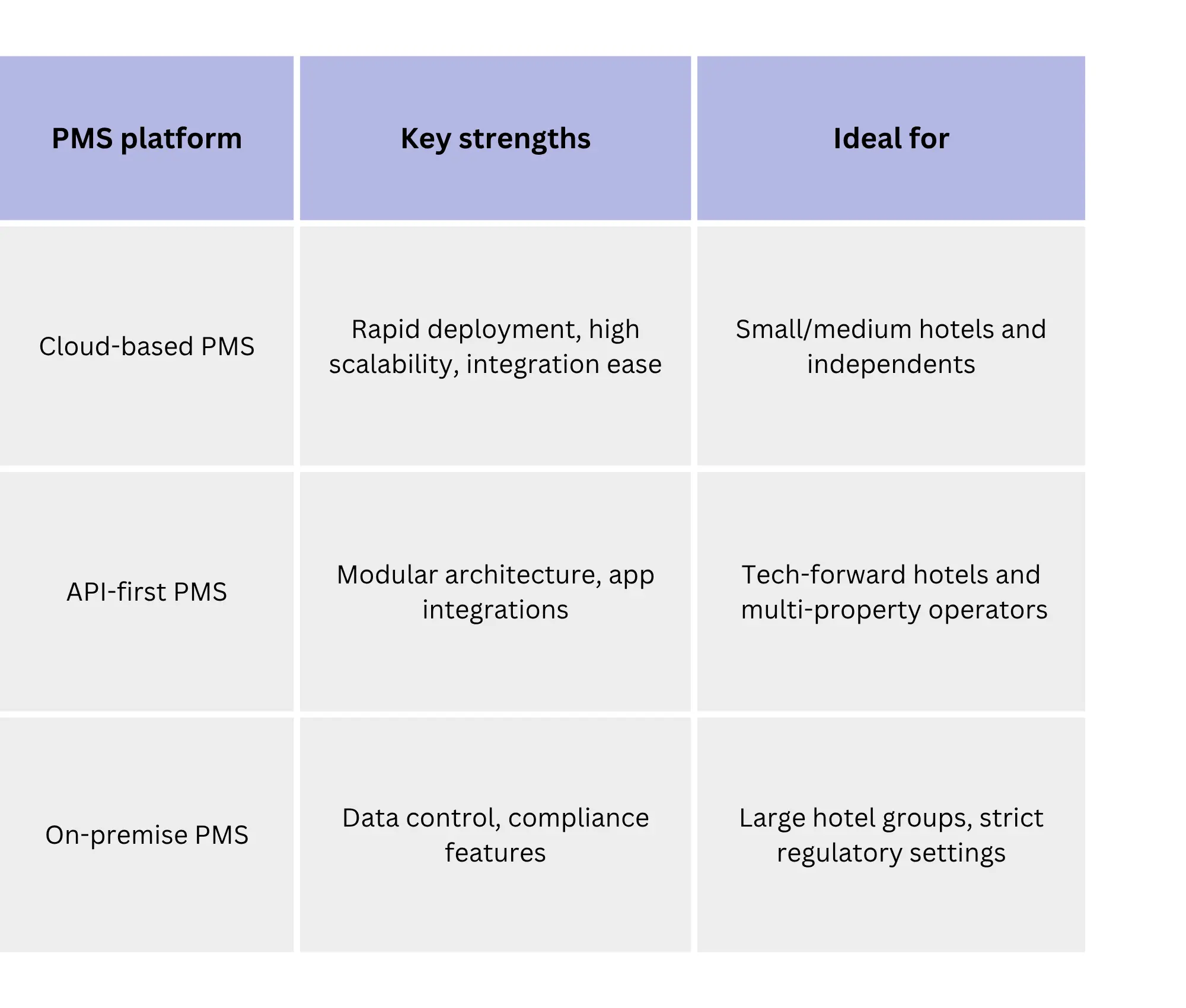
Best PMS systems by hospitality segment
Independent & boutique hotels
For boutique hotels (under 100 rooms), simplicity and guest experience matter most.
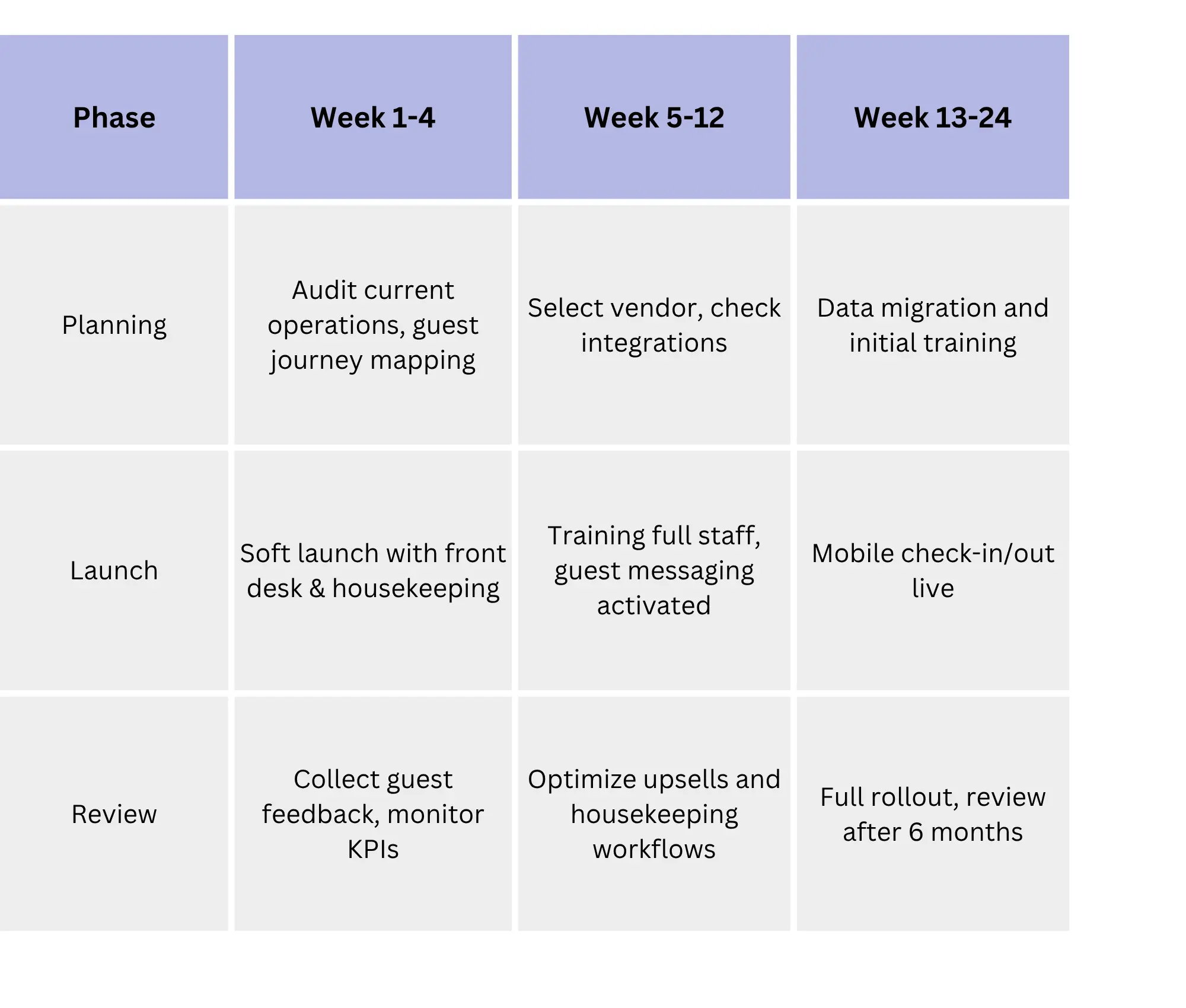
As an example, Hotel Paulinenhof in Germany upgraded its PMS to better integrate with restaurant bookings and services.
Mid-sized hotels & growing chains
For larger hotels and small chains, strong integrations and real-time reporting are key. Informed commentary can be found at Hospitality Net.

According to Hotels Magazine, chains now prioritize flexible PMS platforms over one-size-fits-all solutions.
Luxury resorts & enterprise chains
Resorts and global groups need enterprise-level, scalable PMS for complex operations.
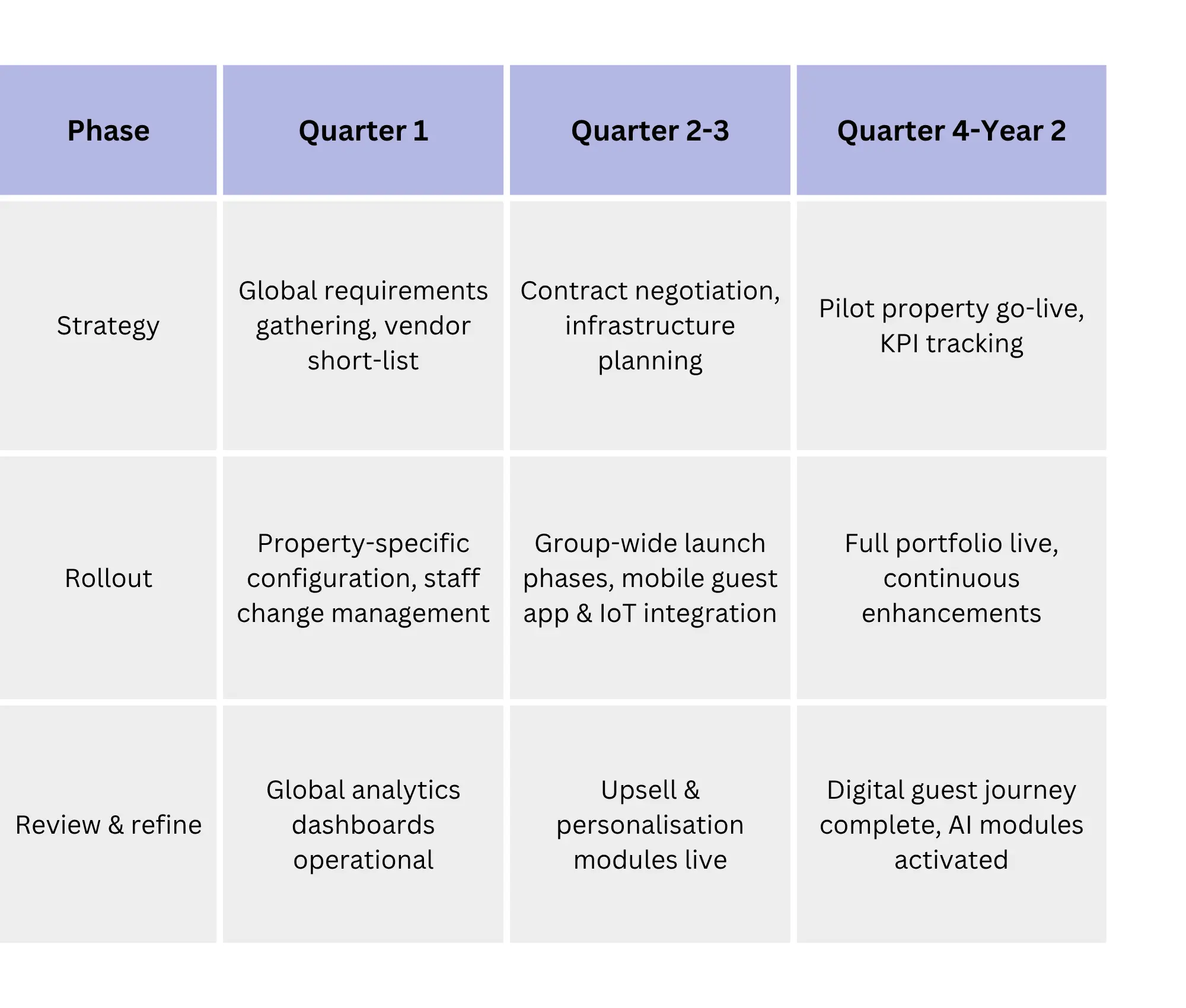
The Texas A&M Hotel & Conference Center saw major gains by integrating smart housekeeping tech with PMS.
Hostels, dorms & shared accommodation
Hostels require systems able to manage mixed inventory and online booking channels. Statista provides data on this market.
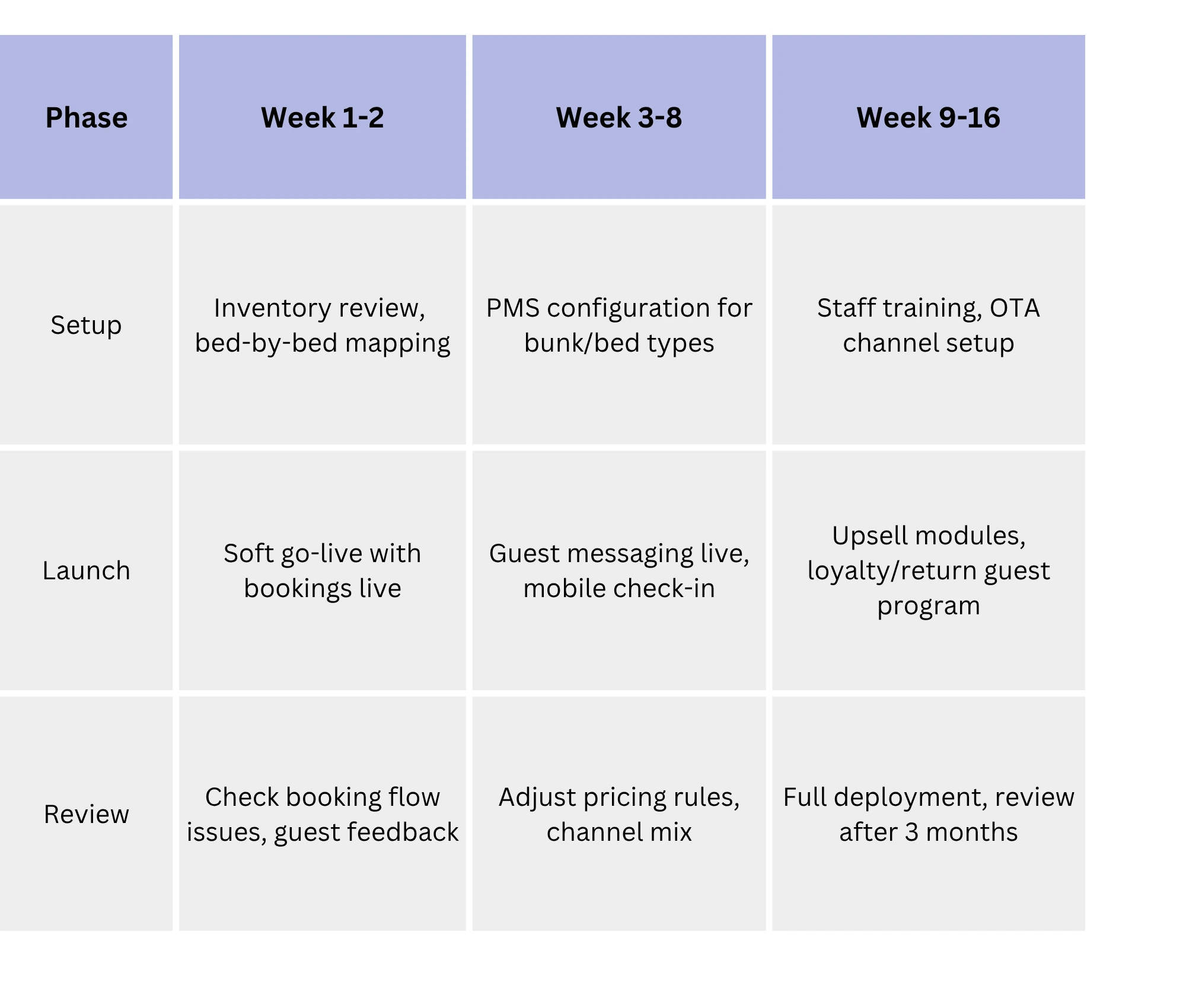
Holiday parks, campgrounds & glamping sites
These sites benefit from PMS solutions built for seasonal pricing and site mapping. Boutique Hotel News covers key technology trends on single-solution platforms.
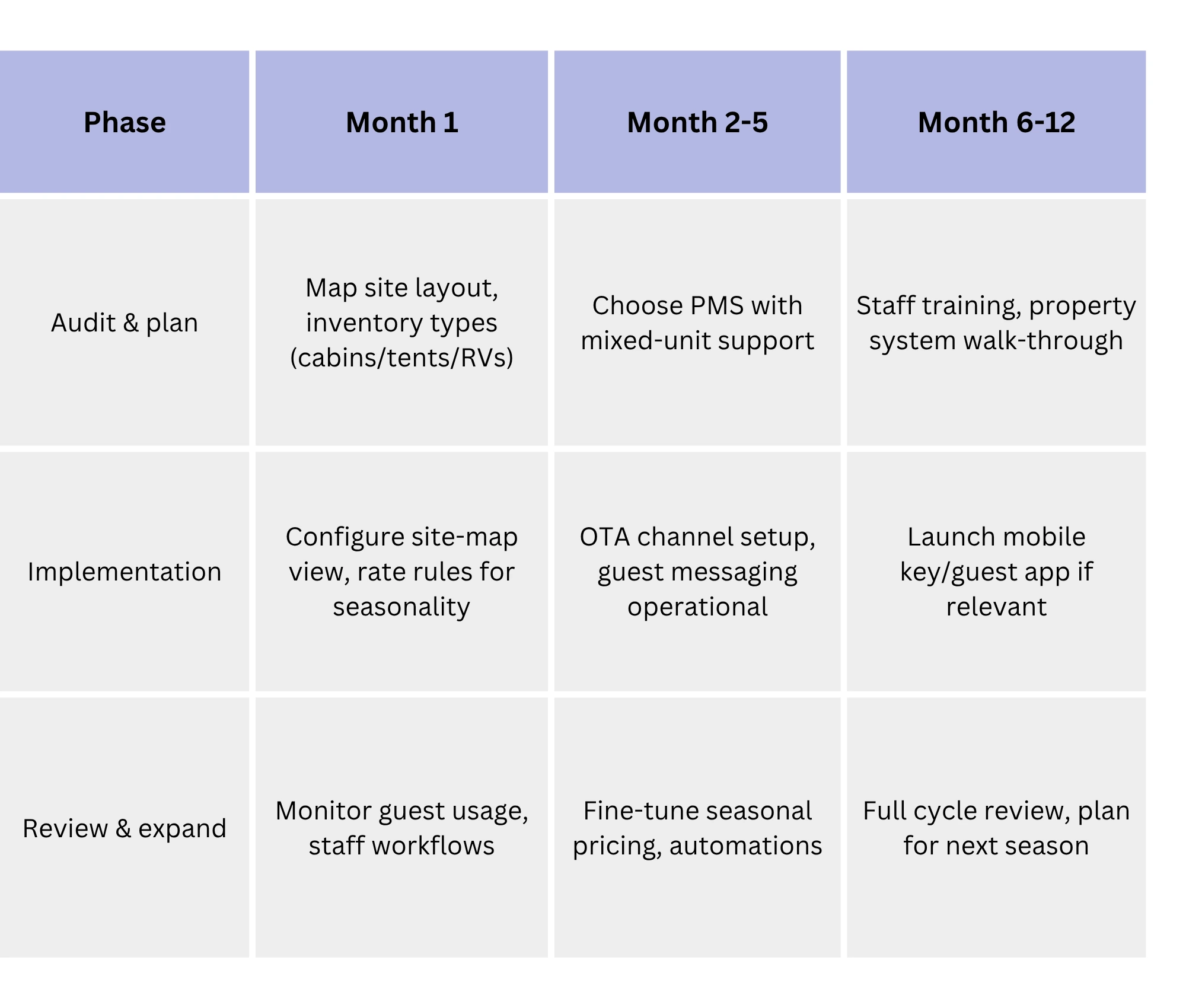
A notable case: Hotel de Sterrenberg in the Netherlands improved efficiency after a PMS upgrade.
What’s new in PMS technology for 2026
Hospitality technology is moving at record speed, and Property Management Systems are evolving right along with it. The PMS of 2026 isn’t just a booking tool - it’s the intelligence hub that powers data-driven decisions, automates guest touchpoints, and connects every part of a hotel’s operation in real time.
AI and predictive analytics
Artificial intelligence is now standard in next-generation PMS platforms. Instead of simply storing guest data, AI engines analyse it to predict behaviour and preferences. Systems can now forecast occupancy trends, recommend dynamic pricing adjustments, and even personalise upsell offers before a guest arrives. According to Skift, leading hotel groups are already using AI-driven PMS modules to anticipate demand spikes and optimise staff scheduling, reducing labour costs and boosting guest satisfaction. AI is also transforming revenue management: by merging PMS data with market signals, hotels can generate predictive insights rather than relying solely on historical reports. In practice, this means that a city hotel can predict the likelihood of cancellations and automatically release inventory at the right rate, while a resort can forecast which amenities a returning guest will most likely book. PMS vendors are now embedding these models into dashboards, making complex analysis accessible to front-line teams.
Mobile & self-service
Mobile and contactless technology has shifted from optional to expected. Guests now want to check in from their phones, open their rooms digitally, and communicate with staff via messaging apps. PMS providers have responded with seamless mobile interfaces that sync every action, from digital key generation to room status updates, directly within the platform.
Reports from Hotel Tech Report show that more than 70% of hotels worldwide plan to expand self-service functionality by 2026. These tools are not just convenient; they also lighten front-desk workloads and allow smaller teams to maintain high service standards. Guests benefit from independence and faster responses, while hoteliers gain data about behaviour patterns that can inform future offerings. For more hospitality statistics, check out this article. Imagine a guest landing after a long flight, completing check-in before leaving the airport, and entering the room without waiting in line. That seamless process, powered by PMS-linked mobile systems, defines hospitality’s new standard.
Smart rooms & IoT
The next wave of innovation connects PMS platforms to physical spaces. Smart-room integrations - lights, thermostats, voice controls, and entertainment systems are now directly managed through PMS APIs. Hospitality Net notes that these integrations make it possible to store guest preferences so that returning visitors find their rooms automatically set to their ideal lighting or temperature. IoT-enabled PMS technology also helps hotels reduce energy use and maintenance costs.
Flexible accommodation models
This trend is particularly relevant for properties that don’t fit the traditional “hotel room only” mould - like serviced residences, mixed-use buildings, long-stay apartments, glamping sites, hostels with private rooms & dorm beds. Properties increasingly operate under hybrid models: short-stay leisure by night, long-stay business by week; rooms that switch use; properties blending serviced apartment + hotel. For instance, the hospitality company The Ascott Limited introduced a “hotel-in-residence” flex-hybrid concept that’s built to adapt to varying stay lengths and guest profiles.
For your PMS this means:
- Mixed-unit inventory: rooms, studio-apartments, serviced apartments, long-stay units, dorms, cabins (all categories must be treated elegantly).
- Flexible rate rules: daily, weekly, monthly stays; you might want to switch between leisure and extended-stay models. The PMS must support that without huge manual configuration.
- Operational workflows that adapt: housekeeping schedules differ between nightly turnover and weekend long-stay; guest services differ too. The PMS should support these.
- Data and guest profiles that span varied stay types: long-stay guests may have different engagement patterns, loyalty criteria and revenue potential.
- A hybrid property can pivot resources based on demand: e.g., during tourist season use more short-stay units; during corporate leasing season switch to weekly/monthly rates. The flex-hybrid model gives adaptability in uncertain demand environments.
So the PMS you choose should not treat your inventory as “rooms only” but as a flexible portfolio that can adapt. If your property falls into this hybrid/mixed category, this capability is critical for 2026 and beyond. Hybrid properties benefit from adaptive PMS solutions.
Mapping tools to the guest journey
Each guest journey consists of several critical touchpoints, and when hospitality systems are integrated through a modern PMS, every interaction becomes a chance to delight, personalize the experience, and increase conversion.
Hospitality tech tools aligned with the guest journey
Pre-arrival:
- Enjovia: Gift voucher and experience commerce platform
- Duve: Guest experience platform for check-in, upsells, and guest communication
On-site:
- Canary Technologies: Contactless check-in, gratuity/tipping, and guest messaging
- Digital Keys: IoT-powered smart room access and digital keys
Post-stay:
- Akia: AI-powered guest messaging and CRM
- Salesforce: CRM suite with personalized re-engagement and loyalty tools
Example - A connected guest journey in practice:
A guest might book a spa weekend using Enjovia, receive a pre-arrival upgrade offer via Duve, access their room with a mobile key solution, and finish their stay with a personalized loyalty offer sent through Akia. This showcases how an integrated tech ecosystem anchored by an advanced PMS delivers tailored experiences at every stage.
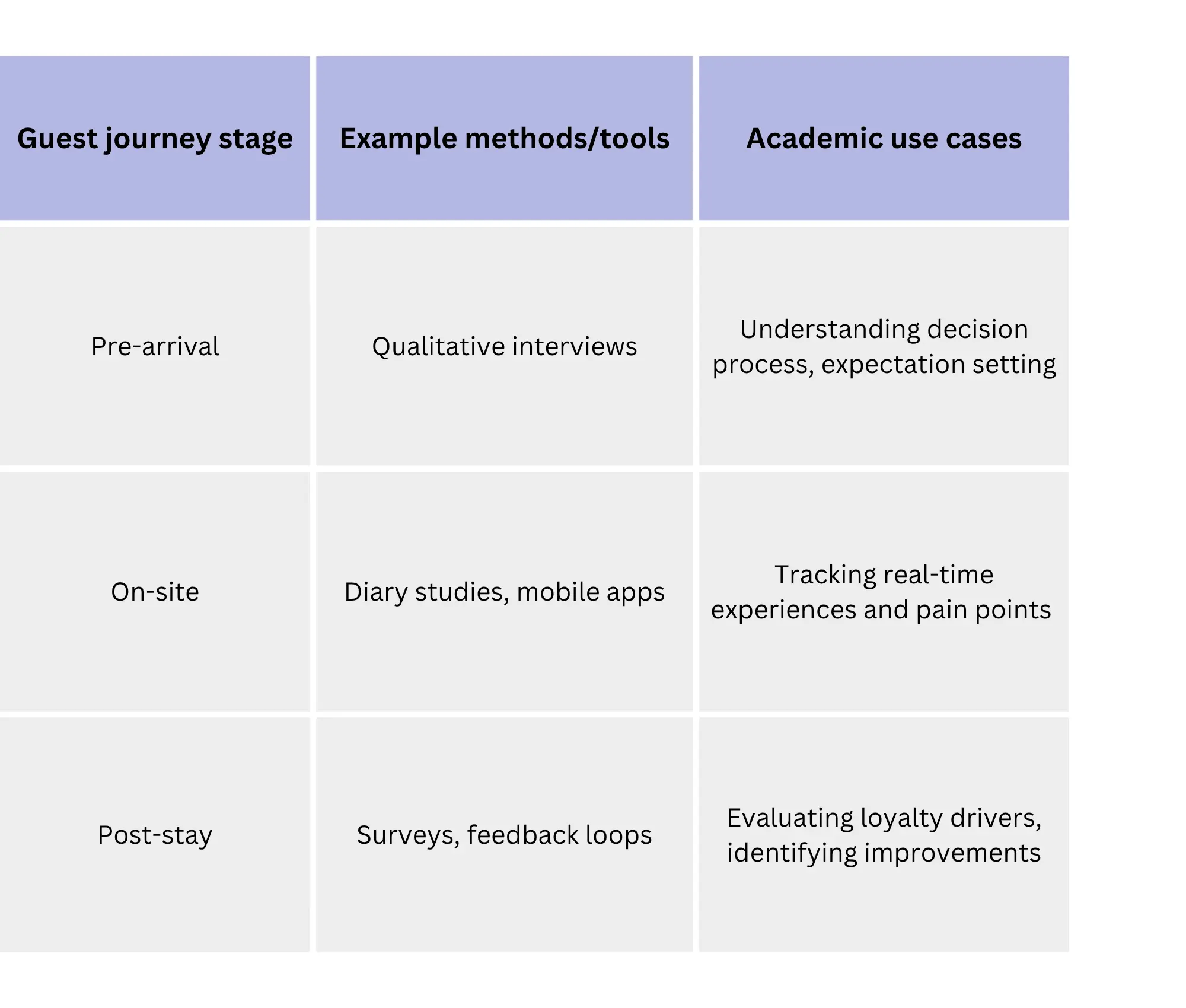
Conclusion
Choosing the right PMS in 2026 is a strategic decision that affects your operations, guest experience and growth potential, as underscored by leading industry research.
Key takeaways:
- Start with clear criteria: cloud-native, integrable, guest-centric, scalable and cost-effective.
- Match the PMS to your hotel’s segment and needs.
- Use realistic implementation timetables and plan for training, data migration, and communication.
- Don’t get distracted by features alone - partnership and support matter.
- Choose a system that supports future trends like AI, mobile journeys, IoT and hybrid models.
A strong PMS doesn’t just manage rooms - it enables experiences, empowers teams and unlocks growth. Your guests will notice the difference, your staff will feel it, and your business results will show it too.
If you are curious how AI is changing the hospitality industry and want to stay up to date with the latest trends, check out this guide.

Ready to bring AI-powered solutions to your hospitality business? Partner with Codelevate and book a free strategy call to discuss your project and explore scalable, high-quality software solutions.
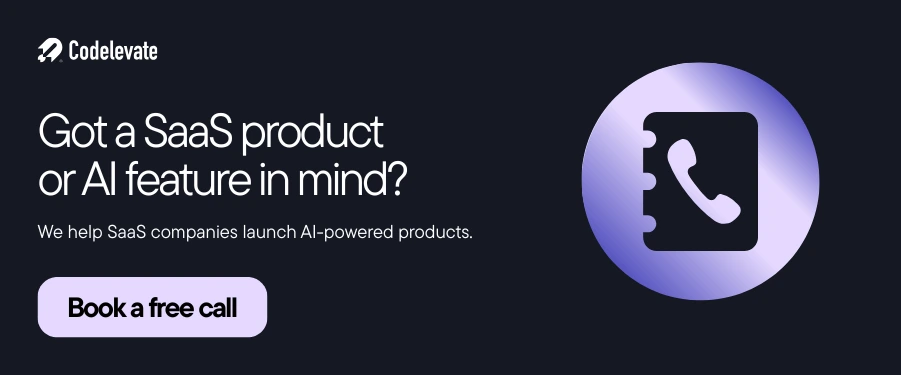


.webp)
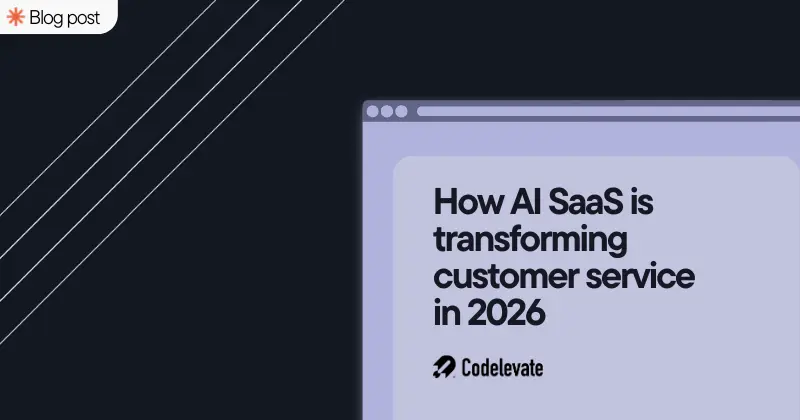
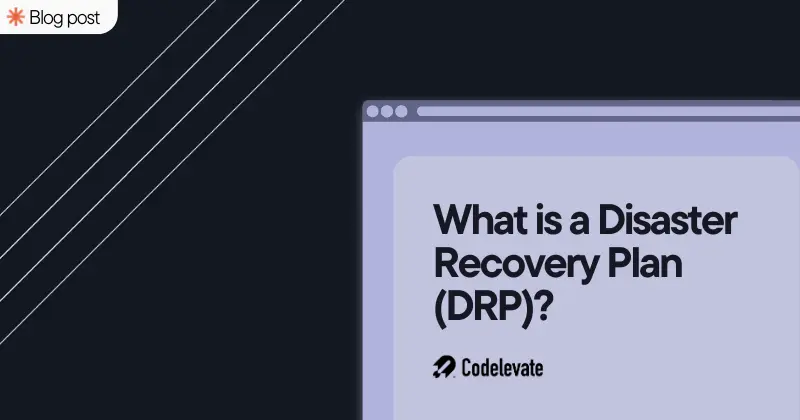
.svg)




